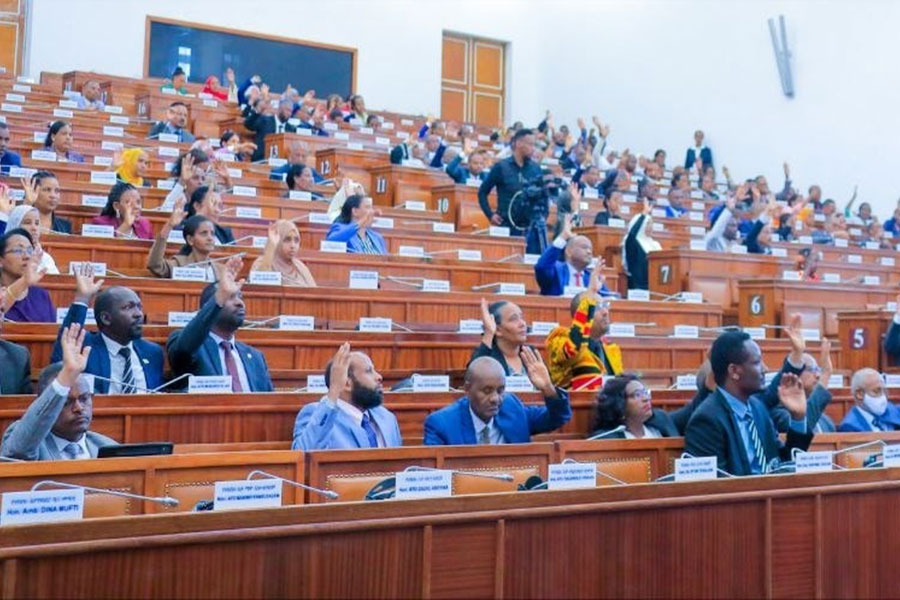
Nov 21 , 2018
By Belay Abera
The dilemma of policing lies in the fact that both vigilance and approachability are necessary. But vigilance could be seen as being overly aggressive. This can deepen mistrust and make it less likely for members of the community to approach the officer in times of trouble or to cooperate. Think of the stop-and-frisk programs that have been equated with racial profiling and abuse of human rights in the United States.
But again a police officer needs to be able to carry out the necessary duty. When crimes take place, there are few other people that we blame besides the perpetrator, and not without a reason. After all, the law should be enforced, crimes need to be anticipated before someone gets harmed, and citizens need to feel safe on the streets, in their homes and at their workplaces.
In Ethiopia, the relationship between police officers and citizens has been complicated. The lack of a strong judicial system and lack of accountability has meant for many that the law and its enforcers do not treat everyone equally. The law may not be followed by the book and the enforcers are rarely seen to be held accountable.
Concomitant with the political reforms the nation is undergoing, one of the prime agendas of Prime Minister Abiy Ahmed’s (PhD) administration has been to make democratic institutions autonomous. This will be no easy task when it comes to law enforcement bodies, since gaining the public trust means finding the balance between policing and responsibility.
This could start by trying a number of new things that can help police officers do their jobs easily. A popular trend these days is community policing, which indeed has perks, and is practised to an extent in Ethiopia. It involves assigning police officers to specific communities for more extended periods of time that allow for close relationships to be formed with residents.
It is akin to a “friendly neighbour” policeman, whom members of the community are not apprehensive of approaching, and the officer is fairly able to spot new faces in the neighbourhood. Close relationships with members of the community can also increase the sense of camaraderie. There have been efforts toward this in Ethiopia but with little to show for it.
Instituting neighbourhood watches that can spot and report potential crime would also greatly benefit countries such as Ethiopia, where policing is still not as sophisticated as it should be.
Another important addition is the use of information technology. With the appropriate infrastructure, daily reports of crime and disorder in neighborhoods can be mapped and used to target where resources should go. An essential part of law enforcement is not merely apprehending criminals but also preventing crime.
Thus, sophisticated and algorithm-supported mapping helps place police officers where they will be most needed. This is especially beneficial to countries such as Ethiopia where resources are limited, but possible areas for an outbreak of crime are high given low employment, often the harbinger of violations of the law.
Surveillance cameras can also revolutionise crime investigations as well as make life harder for offenders by making busy areas and public spaces no-go zones. Despite the justifiable apprehension over the loss of privacy, this is actually indispensable for areas where there usually is huge public presence such as Mesqel Square in Addis Abeba.
Of course, most of this would be for naught if law enforcement officers continue not to be held accountable when they mishandle individuals or use excessive force. This would have two effects.
Primarily, the public’s trust in the rule of law would be corroded, but it will also give way to a sense of impunity by officers. The nature of human beings is such that we would choose to misbehave if we are sure there is a profit to be made and no one will be able to account for our misdeeds.
Prime Minister Abiy is facing a mountainous task in his effort to institutionalise power, a big part of which is revolutionalising law enforcement, as well as ensuring that with capabilities and mandates come responsibilities.
PUBLISHED ON
Nov 21,2018 [ VOL
19 , NO
969]


Radar | May 24,2025

Radar | Dec 08,2024

Fortune News | Dec 19,2018

Viewpoints | Sep 21,2024

Radar | Apr 06,2019

My Opinion | 131674 Views | Aug 14,2021

My Opinion | 128040 Views | Aug 21,2021

My Opinion | 126002 Views | Sep 10,2021

My Opinion | 123625 Views | Aug 07,2021

Dec 22 , 2024 . By TIZITA SHEWAFERAW
Charged with transforming colossal state-owned enterprises into modern and competitiv...

Aug 18 , 2024 . By AKSAH ITALO
Although predictable Yonas Zerihun's job in the ride-hailing service is not immune to...

Jul 28 , 2024 . By TIZITA SHEWAFERAW
Unhabitual, perhaps too many, Samuel Gebreyohannes, 38, used to occasionally enjoy a couple of beers at breakfast. However, he recently swit...

Jul 13 , 2024 . By AKSAH ITALO
Investors who rely on tractors, trucks, and field vehicles for commuting, transporting commodities, and f...

Jun 28 , 2025
Meseret Damtie, the assertive auditor general, has never been shy about naming names...

Jun 21 , 2025
A well-worn adage says, “Budget is not destiny, but it is direction.” Examining t...

Jun 14 , 2025
Yet again, the Horn of Africa is bracing for trouble. A region already frayed by wars...

Jun 7 , 2025
Few promises shine brighter in Addis Abeba than the pledge of a roof for every family...

Jun 29 , 2025
Addis Abeba's first rains have coincided with a sweeping rise in private school tuition, prompting the city's education...

Jun 29 , 2025 . By BEZAWIT HULUAGER
Central Bank Governor Mamo Mihretu claimed a bold reconfiguration of monetary policy...

Jun 29 , 2025 . By BEZAWIT HULUAGER
The federal government is betting on a sweeping overhaul of the driver licensing regi...

Jun 29 , 2025 . By NAHOM AYELE
Gadaa Bank has listed 1.2 million shares on the Ethiopian Securities Exchange (ESX),...